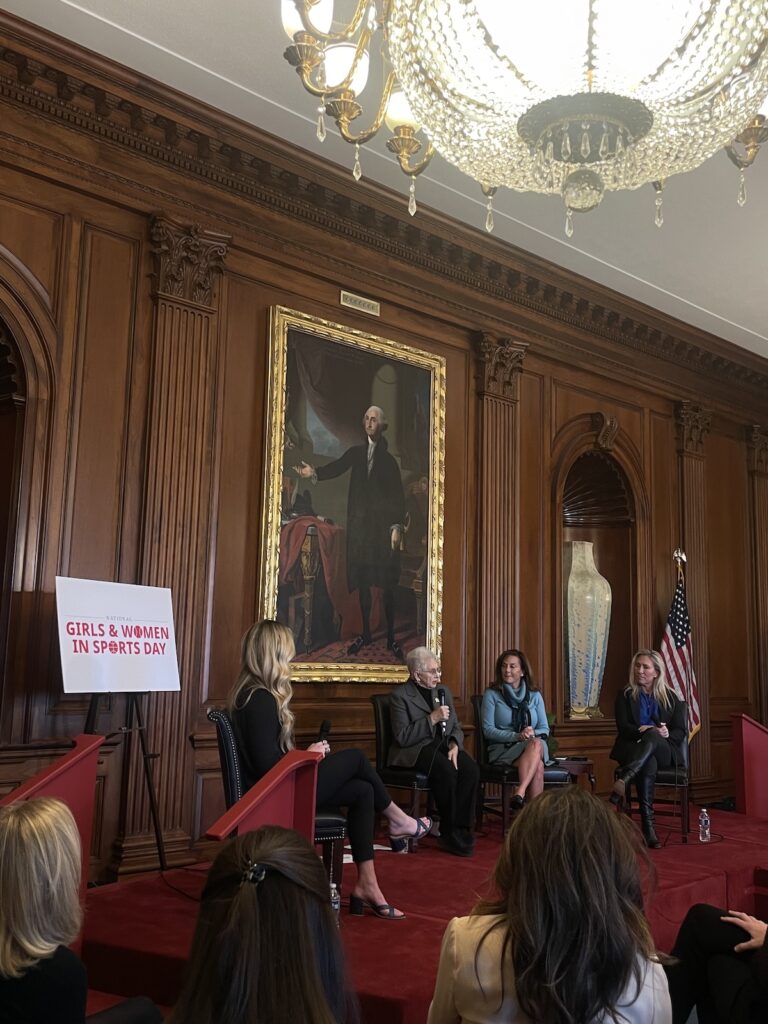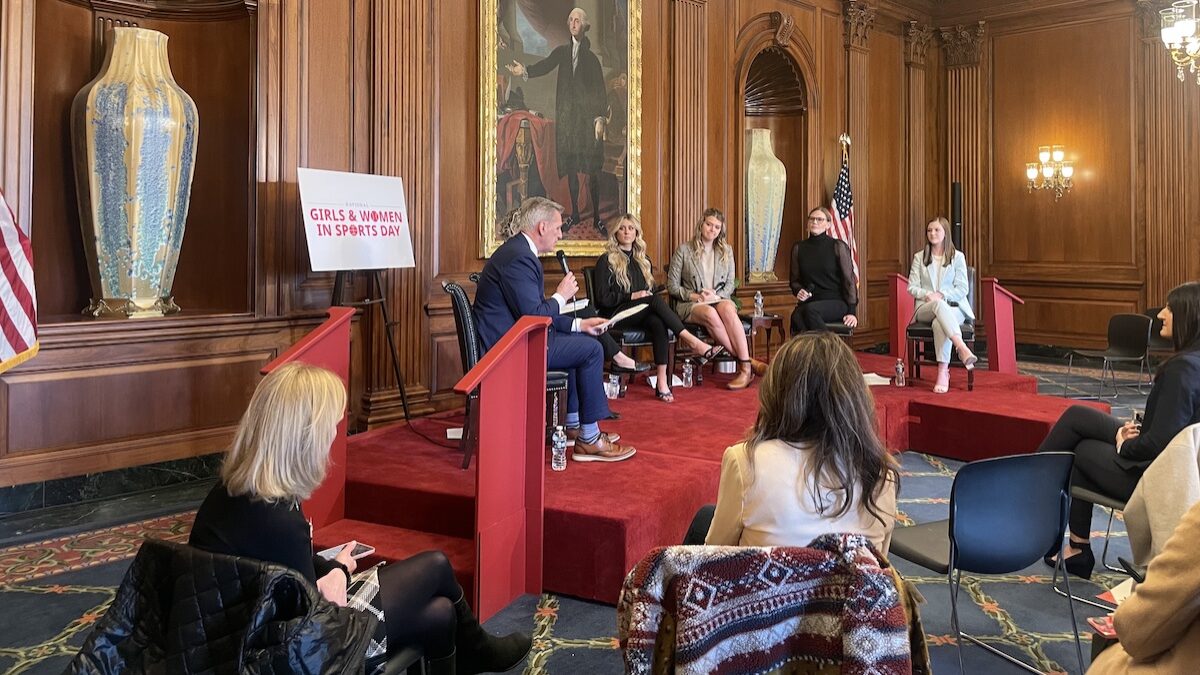Washington, D.C. — Protecting women’s sports is a top priority for House Republicans now that they’ve secured the majority, House Speaker Kevin McCarthy said at a panel held in honor of National Girls and Women in Sports Day at the U.S. Capitol.
“This is not a partisan issue, this is a fairness issue,” McCarthy said.
Included in the panel were the speaker, Rep. Jen Kiggans, R-Florida; former NCAA champion swimmer and Stand With Women spokeswoman Riley Gains; NCAA athlete and Young Women for America Ambassador Macy Petty; and former athlete Margo Knorr. A second panel hosted by Gains included Reps. Virginia Foxx, R-N.C., Marjorie Taylor Greene, R-Georgia, and Lisa McClain, R-Michigan.
In the first panel, participants talked about their experience being sidelined by men in their respective sports and how they want to bring awareness to the issue so women’s sports can be protected.
“If we, as female athletes, aren’t willing to stick up for ourselves, how can we expect someone else to stick up for us,” Gains told the panel. Gains competed on the University of Kentucky women’s swim team, and during her senior year, she tied with male Lia Thomas at the NCAA Championships. Thomas competed in women’s events as a transgender person.
“It was at this moment that I realized that not only were we being forced to compete against biological men, change in the locker room with biological men — who, keep in mind, were fully intact with male genitalia … I realized that we as female athletes were being sidelined to men and reduced to a photo op.”
Petty talked about her experience competing against biological males for scholarships in the college recruitment process.
“These sports reflect our bodies, right?” Petty asked. “Men and women’s sports are separated for a reason, and that reason has nothing to do with ideology or identity but by biology and how we were designed and how we were created.”
Despite their concerns, the NCAA has neither done anything for female athletes nor addressed their complaints about the inclusion of biological men in female spaces.
“No one has asked us how we felt,” Gains said. “We exist to validate a male’s identity.”

In the second panel, all three congresswomen championed The Protection of Women and Girls in Sports Act, a bill that would prohibit colleges from allowing biological males to participate in athletic activities designed for women. The bill was introduced by Rep. Greg Steube, R-Florida, in 2021.
“I’m appalled at what is being pushed,” Foxx told the panel. “I think it’s important that women have the same opportunities that men have. And that was the whole idea behind Title IX [which The Protection of Women and Girls in Sports Act amends] because we understood the inherent unfairness of women not having the opportunity to have scholarships, to be able to compete in their own sports, and to be treated fairly.”
McClain reiterated the importance of being specific when debating the issue.
“If my daughter came home and said, ‘Mom, I was made to undress in a locker room in front of a man with a penis.’ You know what I’d call that? I’d call that ‘indecent exposure.’ So let’s just start calling it out for what it is. Let’s have a bit of courage here.”
Greene echoed the sentiment saying, “If we can’t use the words to describe this issue, then we can’t stop it.” She also emphasized that House Republicans are focused on protecting all female-only spaces, not just sports.
Greene said, “We will fight for you, we will stand up for you, and we will work as hard as possible until we stop this and keep biological men out of female-only locker rooms, bathrooms, hotel rooms when you travel and competing with you and trying to steal your spot.”








